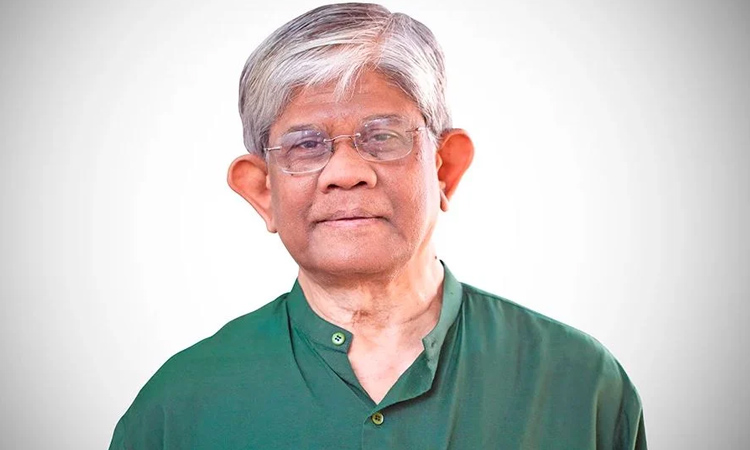News Flash
News Flash

DHAKA, April 29, 2025 (BSS) – Finance Adviser Dr Salehuddin Ahmed today said that the International Monetary Fund (IMF) had acknowledged the macroeconomic stability of Bangladesh, including the stable state of foreign currency reserves and exchange rate compared to the situation in the last December.
The Finance Adviser said this while replying to a barrage of questions after chairing two separate meetings on the Advisers Council Committee on Economic Affairs and the Advisers Council Committee on Government Purchase at the Cabinet Division Conference Room at Bangladesh Secretariat today.
While divulging the outcomes of his recent tour to the USA attending the Annual Meetings of the World Bank and the IMF, he said that now in Bangladesh, the macroeconomic stability is far better as the IMF had also recognized it compared to the country’s condition in the last December.
“Without receiving any further fund from the IMF, we’ve managed to make stable the foreign currency reserves and the exchange rate. We’ve ensured macroeconomic stability without their support and this is a proof,” he added.
Dr Salehuddin said that the international financing institution would not be able to shoulder anything on the country.
“They (IMF) told us that they will continue while they have also said that they are arriving to an agreement,” he added.
About the upcoming project related support, he said supports are in the pipeline from ADB, the World Bank, NDB, and IsDB. “Regarding project support, we’re not apprehending any problem,” he added.
Apart from separating the NBR, the Finance Adviser said that the IMF had earlier suggested for making flexible the foreign exchange market. “But, some issues are there to consider before making it wide open … since it is a major policy tool,” he said.
He said if the foreign exchange market is opened fully, then the country can experience currency depreciation like in Sri Lanka and Pakistan. “But, we’ve told them that it is already stable,” he added.
The Finance Adviser if there is any volatility in the foreign exchange market, then the multinational companies, foreign investors and private investors might get a wrong signal.
During his meetings with the multinational companies in the USA, he said giants like the Chevron, Mastercard, said that Bangladesh’s economy is now more or less stable while they are looking forward to engage.
“On the whole, there is nothing to feel sorry for Bangladesh,” he added.
Replying to a question, Dr Salehuddin said that the government may be a bit cautious regarding budget support as it needs to repay in four to five years, adding, “We’ll have to be careful. We won’t take the burden of loans without any cause…we had to argue.”
For taking loans, he said it is the government which would take the decision whether to take loan from them or not, but not the financing institution.
The Finance Adviser said the IMF usually sees economic stability and due diligence before lending any support.
Asked whether Bangladesh will get the two tranches of loans from the IMF by June out of its $4.7 billion package, he suggested media for waiting for some more days as the IMF had given such notion.
He said agreements worth $1 billion have already been signed with the development partners like the World Bank and the OPEC Fund while more are in the offing.